Swiss politics splits down the centre
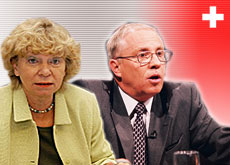
With six months before the general election, Switzerland's political landscape is becoming increasingly polarized, with voters deserting the centre parties.
The left-leaning Social Democratic Party and the right-wing Swiss People’s Party emerged the main winners of this weekend’s regional elections.
The two other main parties, the centre-right Radicals and Christian Democrats lost votes, in what commentators say is likely to mirror national voting patterns in the October elections.
“In 70 per cent of cases, the trends in cantonal elections are reflected nationally,” Andreas Ladner, political analyst at Bern University, told swissinfo.
“We can expect the Swiss People’s Party to gain more votes in the national elections in autumn. They might get 25 per cent.
“The Social Democrats will probably gain as well and it will be very difficult for the parties in the middle – the Radicals and the Christian Democrats – not to lose votes and seats.”
More seats
The Social Democrats won 16 additional seats in the parliaments of cantons Zurich, Lucerne, Ticino and Appenzell Outer Rhodes.
The party also increased its percentage of the vote in Italian-speaking canton Ticino, becoming the third most popular party in the canton.
Meanwhile, the People’s Party won 13 more seats. The right-wing party boosted its share of the vote in a number of cantons, including Ticino where it made gains at the expense of the right-wing Lega dei Ticinesi.
In French-speaking Switzerland, the People’s Party has also begun making inroads. For the first time in the party’s history, it won seats – nine in total – in the Geneva city parliament at the end of March.
Barometer
In Zurich, which is seen as a barometer of the national mood, the Social Democrats gained ten seats in the cantonal parliament, taking their total to 53, and succeeded in getting another member into the cantonal government.
Meanwhile, the Swiss People’s Party consolidated the huge gains it made four years ago, winning an extra seat and taking their total to 61.
“The bad economic situation and high unemployment mobilised Social Democrat voters and those from the People’s Party, ” said Pascal Sciarini, a professor at the Swiss Graduate School of Public Administration in Lausanne.
Local concerns played a part too – not least the debate over noise levels at Zurich airport.
Mismanagement
Inept mismanagement in some high profile Swiss companies also tainted the Radicals who lost six seats in the cantonal parliament.
Meanwhile, the Christian Democrats not only lost their seat in the cantonal government but are now the fifth force in Zurich politics behind the Green Party.
“If we look at the political landscape where the Christian Democrats are still represented and strong, we realise that they are almost absent in the important centres of the country. To that extent they can hardly be considered a national party anymore,” said Ladner.
The People’s Party is already the second biggest faction in the House of Representatives and will almost certainly call again for a second seat in the federal government after October’s elections.
Under the “Magic Formula” – a power sharing arrangement in place since 1959 – the People’s Party has only one seat in the seven-member cabinet, with the other three main parties holding two each.
Ladner believes that this will only happen when one of the two Christian Democrats in the government retires or if the number of seats is increased.
Voter turnout in Zurich was an all time low of 35 per cent reflecting, say some commentators, a growing mood of political disenchantment in Switzerland.
swissinfo, Vincent Landon
Social Democratic Party and Swiss People’s Party won the weekend’s regional elections.
Radicals and Christian Democrats lost votes.
Commentators say the trend is likely to be mirrored in October’s general elections.
The results suggest an increasing polarisation of Swiss politics.
Voter turnout in Zurich was only 35 per cent.

In compliance with the JTI standards
More: SWI swissinfo.ch certified by the Journalism Trust Initiative
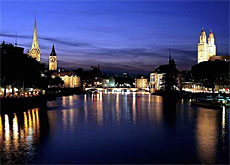
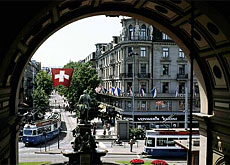
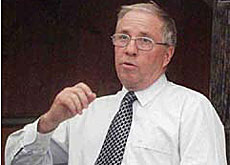
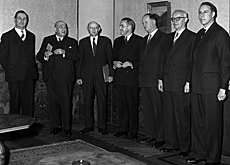
You can find an overview of ongoing debates with our journalists here. Please join us!
If you want to start a conversation about a topic raised in this article or want to report factual errors, email us at english@swissinfo.ch.